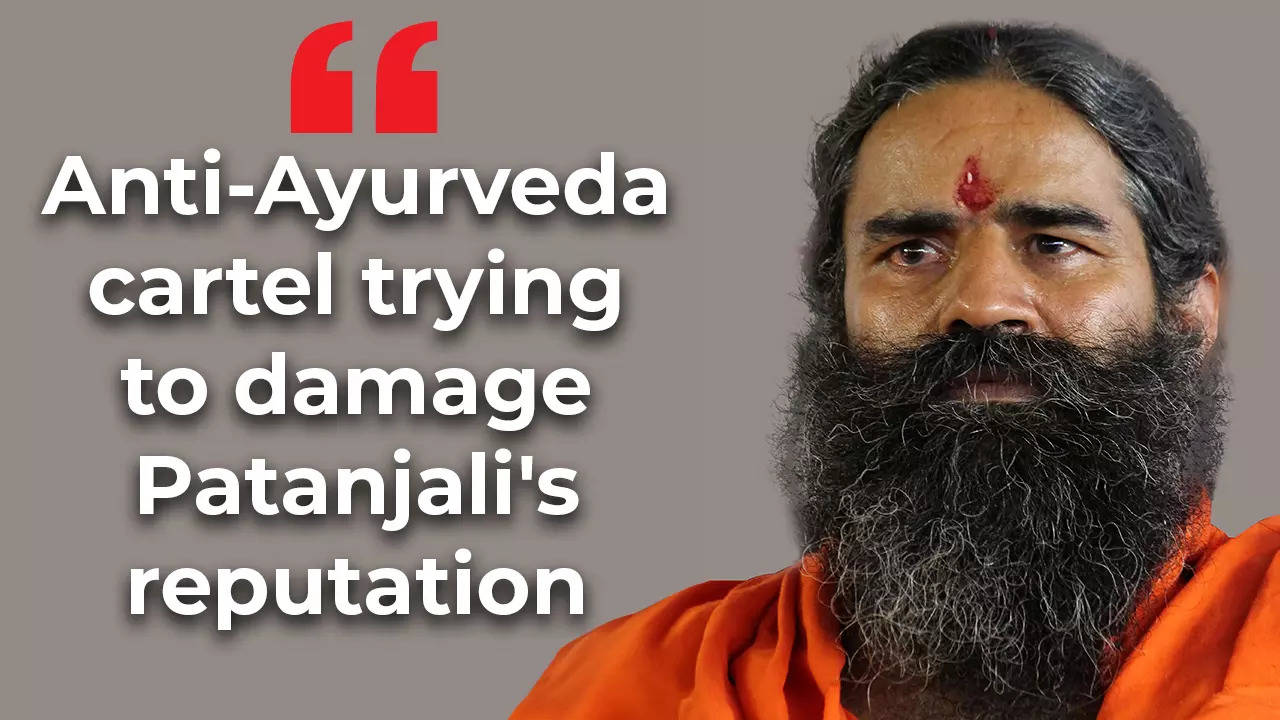Baba Ramdev, the founder of Patanjali Ayurved has claimed that a cartel of corporations, pharmaceutical companies, intellectuals, and politicians has been working against the ayurveda-based consumer goods company. In an interview with ET, he stated, “Patanjali denotes nationalism and self-pride which this group (alleged cartel) wants to destroy.”
Ramdev also claimed that people are spreading false information about the brand.He said that there is a narrative against Patanjali’s research and development facilities, which he believes are superior to those of Hindustan Unilever Ltd, India’s largest consumer goods company, and even the government’s ayurvedic facility.
“People try to damage the reputation of Patanjali, about ayurveda and natural products,” Ramdev said. “But we are focused on our objectives of adding investor value, ramping up distribution and sales, research, innovation and ecommerce. Premiumisation will also be a core focus area for us now.”
In the financial year 2023-24, Patanjali’s total revenue from operations amounted to Rs 31,721.35 crore, with the food and FMCG business contributing Rs 9,643.32 crore. The share of revenues from the food and FMCG segment in relation to the total revenue from operations increased from 19.49% in FY23 to 30.06% in FY24.
“Despite all hurdles and struggles, we have reached where we are. We didn’t reach here because of any favours… We are here because of India’s consumers,” Ramdev said.
Patanjali Ayurved, which had compelled both global and local players such as HUL, L’Oréal, Colgate Palmolive, and Dabur to enhance their own ayurveda portfolios about a decade ago due to its remarkable growth and popularity, has been facing various challenges in recent times. These include intense competition from both international and domestic players, issues with regulatory compliance, and criticism regarding the claims made about the quality of its products.
Patanjali has been making efforts to transform its image from an organization led by Baba Ramdev and his close associates in Haridwar by recruiting professionals to handle key positions within the company.
Sanjeev Asthana, the chief executive of Patanjali, dismissed claims that the company’s market share and brand image have weakened over the past two years due to quality concerns and increased competition. He stated that Patanjali holds a two-thirds share in the herbal toothpaste market, is the fourth largest biscuit player in the country with sales of Rs 1,600 crore last year, and maintains a dominant position in herbal skincare and homecare. Asthana added, “We have 10 brands that have leadership level in business.”
According to Asthana, Patanjali’s packaged consumer business has been experiencing a growth rate of 15-20% at an overall level, while revenues have doubled over the past 3.5 years, reaching Rs 31,000 crore. He emphasized, “Our growth rate has been scorching, whether it’s market share or distribution.”
Ramdev also claimed that people are spreading false information about the brand.He said that there is a narrative against Patanjali’s research and development facilities, which he believes are superior to those of Hindustan Unilever Ltd, India’s largest consumer goods company, and even the government’s ayurvedic facility.
“People try to damage the reputation of Patanjali, about ayurveda and natural products,” Ramdev said. “But we are focused on our objectives of adding investor value, ramping up distribution and sales, research, innovation and ecommerce. Premiumisation will also be a core focus area for us now.”
In the financial year 2023-24, Patanjali’s total revenue from operations amounted to Rs 31,721.35 crore, with the food and FMCG business contributing Rs 9,643.32 crore. The share of revenues from the food and FMCG segment in relation to the total revenue from operations increased from 19.49% in FY23 to 30.06% in FY24.
“Despite all hurdles and struggles, we have reached where we are. We didn’t reach here because of any favours… We are here because of India’s consumers,” Ramdev said.
Patanjali Ayurved, which had compelled both global and local players such as HUL, L’Oréal, Colgate Palmolive, and Dabur to enhance their own ayurveda portfolios about a decade ago due to its remarkable growth and popularity, has been facing various challenges in recent times. These include intense competition from both international and domestic players, issues with regulatory compliance, and criticism regarding the claims made about the quality of its products.
Patanjali has been making efforts to transform its image from an organization led by Baba Ramdev and his close associates in Haridwar by recruiting professionals to handle key positions within the company.
Sanjeev Asthana, the chief executive of Patanjali, dismissed claims that the company’s market share and brand image have weakened over the past two years due to quality concerns and increased competition. He stated that Patanjali holds a two-thirds share in the herbal toothpaste market, is the fourth largest biscuit player in the country with sales of Rs 1,600 crore last year, and maintains a dominant position in herbal skincare and homecare. Asthana added, “We have 10 brands that have leadership level in business.”
According to Asthana, Patanjali’s packaged consumer business has been experiencing a growth rate of 15-20% at an overall level, while revenues have doubled over the past 3.5 years, reaching Rs 31,000 crore. He emphasized, “Our growth rate has been scorching, whether it’s market share or distribution.”
